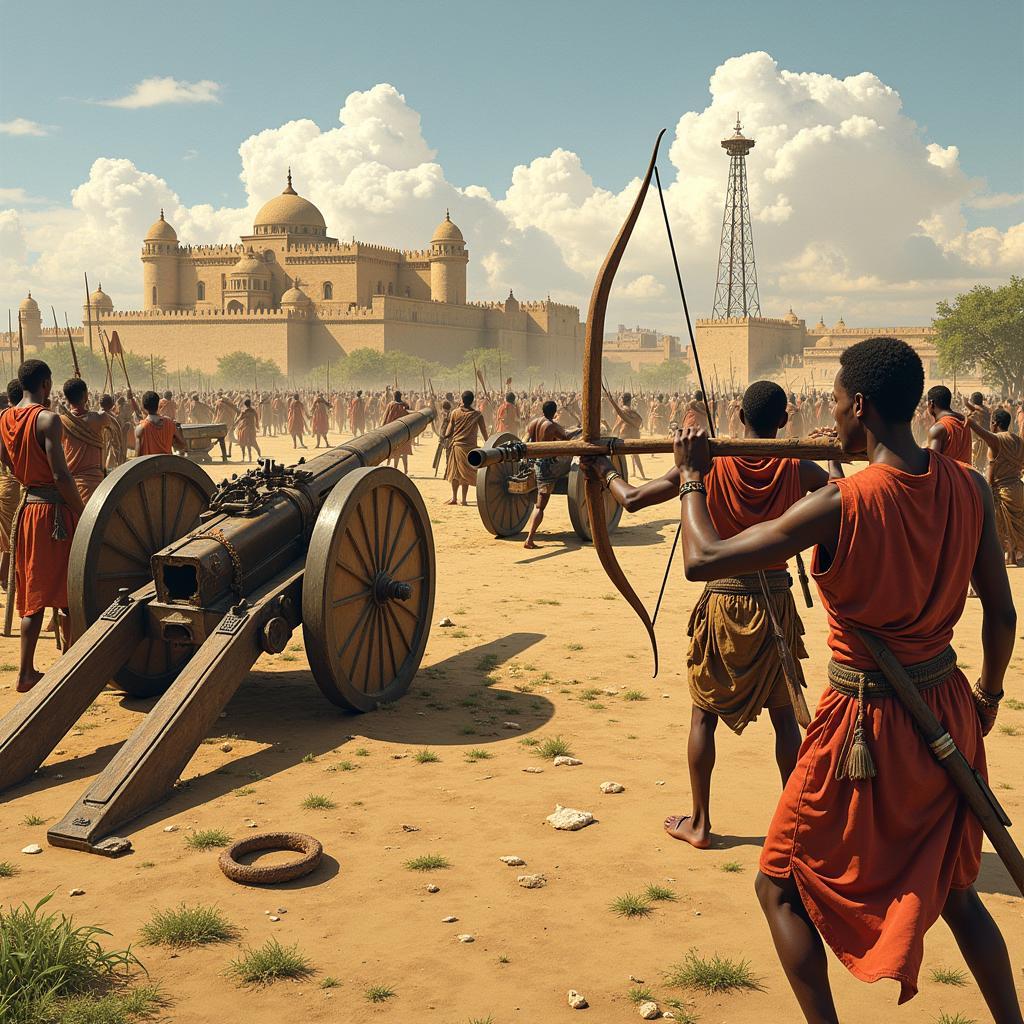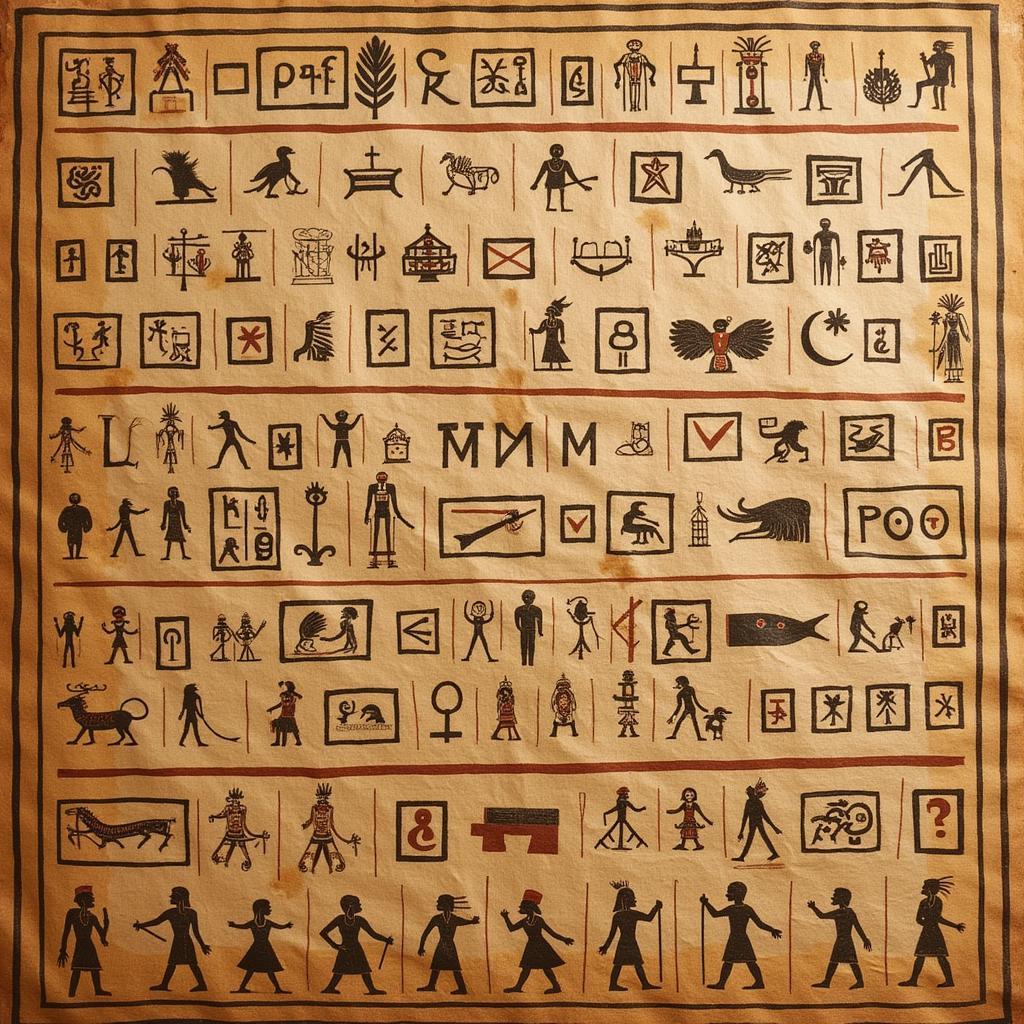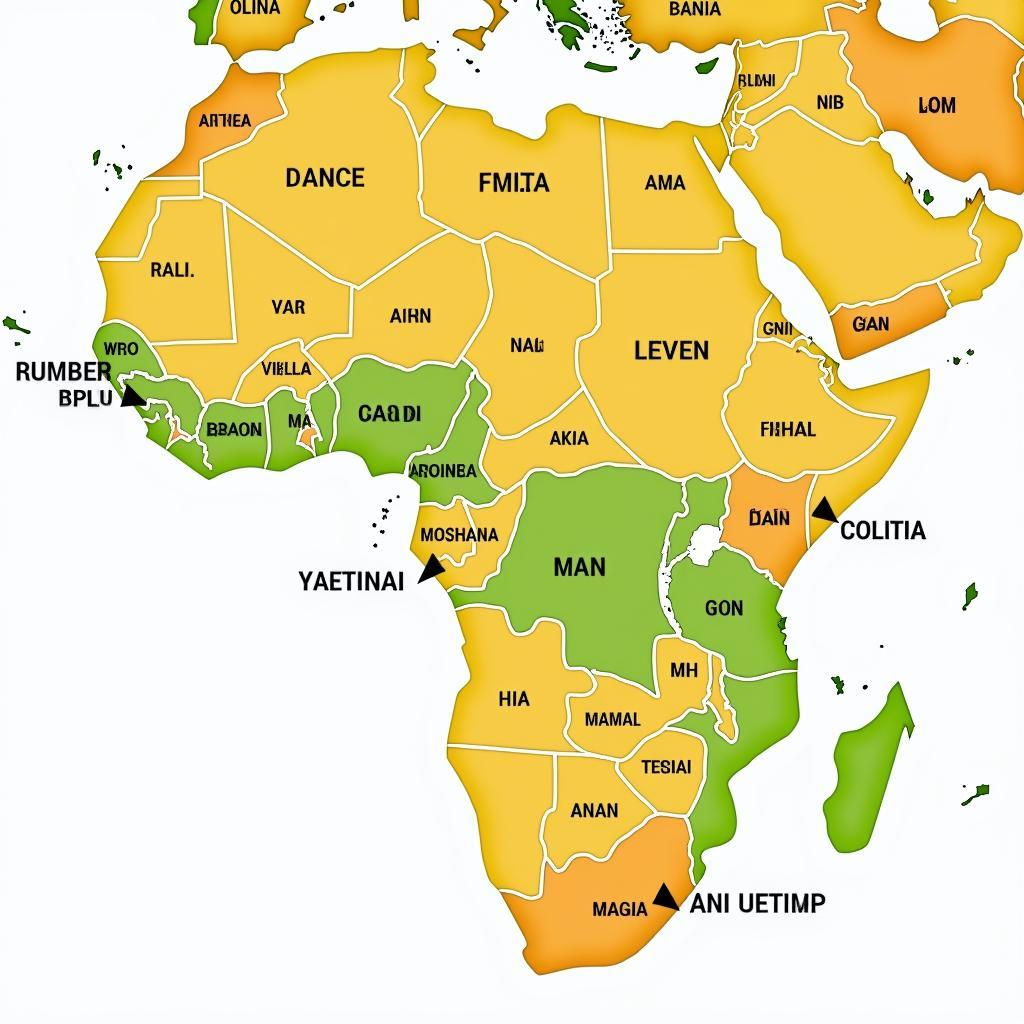African History and Religion Essay: An Exploration of Intertwined Narratives
African history and religion are inextricably linked, shaping the continent’s diverse cultures and societies for millennia. From ancient Egypt’s complex pantheon to the widespread adoption of Islam and Christianity, and the enduring presence of indigenous belief systems, understanding African history requires an appreciation of the spiritual forces that have guided its people.
The Tapestry of Indigenous Beliefs
Before the arrival of major world religions, Africa boasted a rich tapestry of indigenous spiritual traditions. These beliefs often centered around ancestor veneration, a deep respect for nature, and the concept of a vital life force connecting all living things. Many communities believed in a supreme being, alongside a complex hierarchy of spirits and deities. Rituals, often involving music, dance, and storytelling, played a central role in maintaining spiritual harmony and seeking guidance from the spiritual realm. These beliefs permeated every aspect of life, from birth and death to agriculture and governance. To understand the full scope of African history, exploring these foundational spiritual frameworks is crucial. You might also be interested in learning more about African heroes throughout history. african heroes in history
Ancestor Veneration and its Importance
Why was ancestor veneration so important? Because ancestors were seen as intermediaries between the living and the spiritual world, capable of offering guidance and protection. Their wisdom and experience were revered, and rituals were performed to honor them and seek their blessings.
The Arrival and Adaptation of World Religions
The arrival of Islam and Christianity significantly impacted African history and religious landscapes. Islam spread across North and West Africa through trade routes, bringing new legal systems, educational institutions, and artistic styles. Christianity, initially introduced through Roman influence in North Africa, later gained prominence in sub-Saharan Africa during the colonial era. However, both religions were often adapted and blended with existing indigenous beliefs, creating unique syncretic traditions.
How did African societies adapt these new religions?
They often incorporated elements of their indigenous beliefs into the new faiths, creating a unique blend of traditions. For example, some communities integrated their traditional deities into the Christian or Islamic pantheon, while others continued to practice ancestor veneration alongside their adopted religion.
African History and Religion Courses: A Deeper Dive
Want to explore this fascinating topic further? Numerous African history and religion courses offer in-depth explorations of these intertwined narratives. These courses delve into the complexities of indigenous beliefs, the spread and adaptation of world religions, and the ongoing dialogue between faith and culture in contemporary Africa. african history and religion courses These courses provide valuable insights into the rich spiritual heritage of the continent and its enduring impact on African societies.
What can I learn from these courses?
You can gain a deeper understanding of specific religious traditions, the historical context in which they developed, and their influence on various aspects of African Life, including art, music, literature, and politics.
The Continued Relevance of African Spirituality
African spirituality continues to play a vital role in shaping contemporary African societies. From traditional healing practices to the growing popularity of Pentecostal Christianity, faith remains a powerful force in shaping individual identities, social structures, and political movements. Understanding this ongoing influence is essential for comprehending the complexities of modern Africa. You can find a brief overview of African English Literature which often incorporates these themes. african english literature brief
Dr. Amina Kenyatta, a renowned scholar of African religions, notes: “African spirituality is not a static entity. It is a dynamic force that continues to evolve and adapt to changing circumstances, while retaining its core values of community, connection to nature, and respect for the ancestors.”
Professor Kwame Nkrumah, a leading historian of West Africa, adds: “The interplay between indigenous beliefs and world religions has created a uniquely African religious landscape. Understanding this dynamic is crucial for comprehending the complexities of African history and culture.”
In conclusion, African history and religion are deeply intertwined, shaping the continent’s diverse cultures and societies throughout the ages. From ancient indigenous beliefs to the adoption and adaptation of world religions, faith has played a central role in shaping the African experience. Exploring this rich and complex history offers a deeper understanding of the continent’s past, present, and future. You might find a collection of African American literature helpful in further exploration. african american literature pdf
FAQ
- What are some common indigenous African religions? Examples include Yoruba, Igbo, Zulu, and Akan beliefs.
- How did Islam spread to Africa? Primarily through trade routes and the influence of Muslim scholars and merchants.
- What is the role of religion in contemporary African societies? Religion continues to influence social norms, political movements, and cultural expressions.
- Where can I find more resources on African history and religion? Libraries, universities, and online databases offer a wealth of information.
- What are some key themes in African spirituality? Common themes include ancestor veneration, connection to nature, and a belief in a vital life force.
- How have African religions influenced art and music? Religious beliefs and practices are often reflected in traditional art forms, music, and storytelling.
- Are there any similarities between indigenous African religions and world religions? Some scholars argue that there are shared themes and concepts, while others emphasize the distinct nature of each tradition.
You can also explore other related topics like “African Americans Top 10 Autobiography Books” on our website. african americans top 10 autobiography books
Need further assistance? Contact us at Phone Number: +255768904061, Email: [email protected] or visit us at Mbarali DC Mawindi, Kangaga, Tanzania. We have a 24/7 customer support team.



